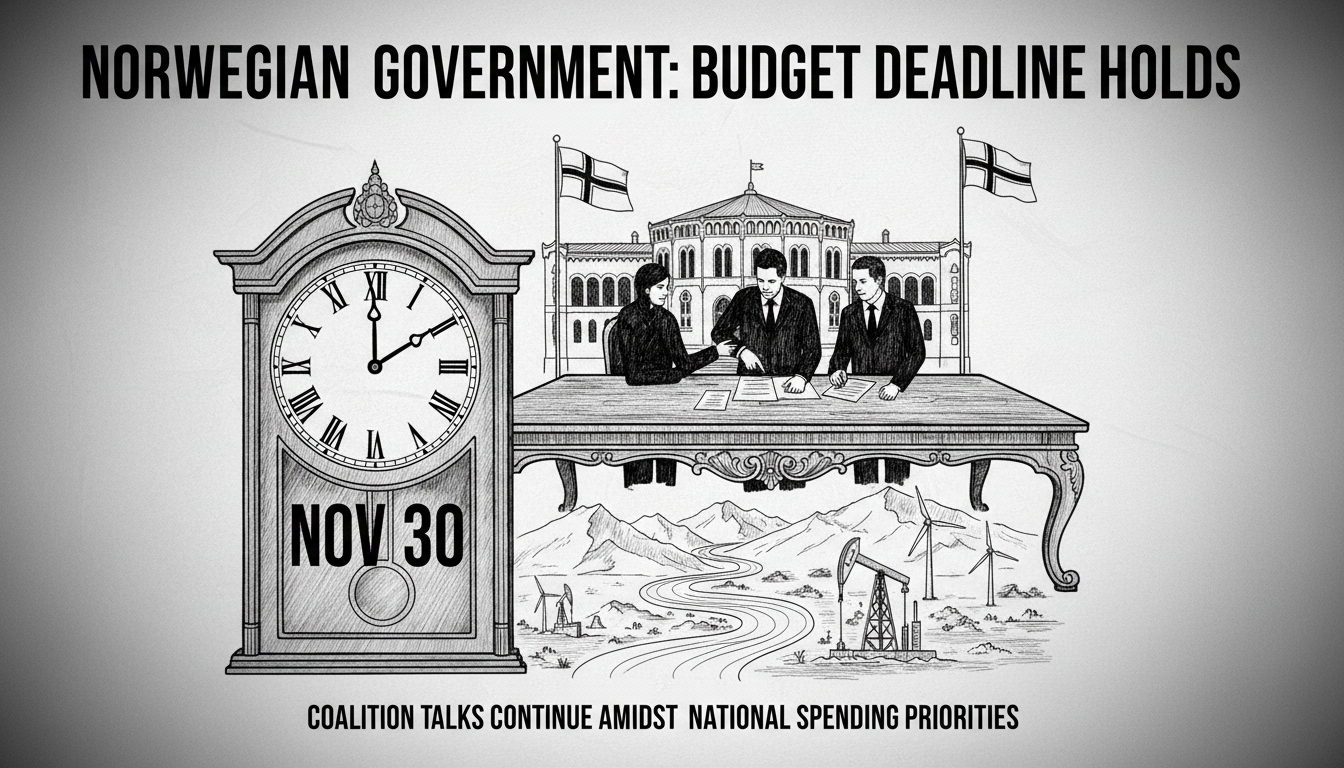Norway's governing coalition has decided against requesting an extension for the national budget deadline. The Labour Party and its budget partners will now face a firm November 30 cutoff to present their negotiated fiscal plan to Parliament. This decision signals confidence in reaching agreement despite complex negotiations involving multiple political factions.
The budget process represents a critical test for Norway's minority government. Coalition partners must balance competing priorities across environmental policy, social welfare, and economic management. The fixed deadline creates pressure for compromise while ensuring parliamentary procedures remain on schedule. Budget negotiations typically involve extensive discussions about oil revenue allocation and Arctic development funding.
Norway's fiscal management carries particular significance given the country's substantial petroleum sector. The government must carefully balance oil industry investments with green energy transitions. Major offshore fields like Johan Sverdrup and Snøhvit require consistent funding while the nation develops renewable alternatives. Budget decisions directly impact Norway's standing in European energy markets.
Political observers note the challenge of satisfying diverse coalition demands. The Labour Party leads a government that includes centrist and left-leaning partners with different priorities. Some factions emphasize environmental protection while others focus on social programs or economic stability. These tensions often surface during budget discussions about Arctic policy and energy development.
The maintained deadline suggests negotiators believe they can bridge these differences. Failure to reach agreement would represent a significant political setback. The government's ability to manage Norway's economy and maintain stability in the Storting depends on successful budget outcomes. All parties recognize the consequences of missing this crucial deadline.
What does this mean for Norway's oil industry? The budget will determine funding levels for offshore operations and energy transition projects. Companies operating in the Norwegian Sea and Barents Sea monitor these developments closely. Budget allocations influence everything from drilling permits to carbon capture initiatives.
The coming days will reveal whether Norway's political factions can unite around a common fiscal vision. The deadline now stands as an immutable marker in Norway's political calendar. All parties must either compromise or face the consequences of budgetary failure.

